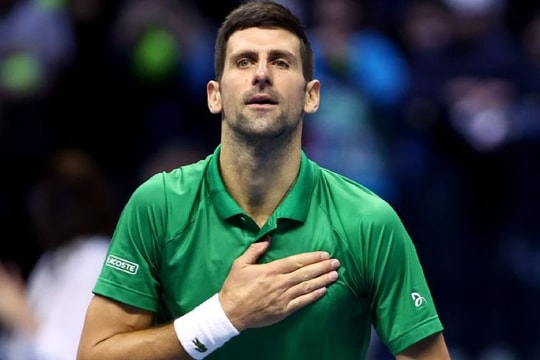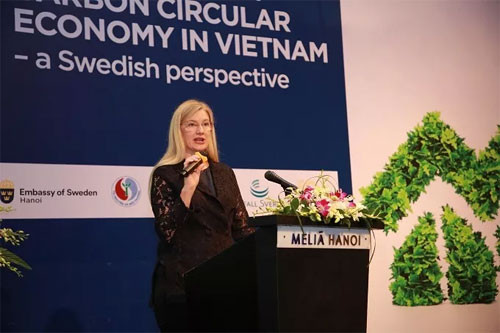 |
| Swedish Ambassador to Vietnam Ann Mawe speaks at the seminar. (Photo: Swedish Embassy) |
Addressing the event, Swedish Ambassador Ann Mawe said that as one of the world’s leading sustainable development countries, Sweden is aiming towards a zero-waste society.
Thanks to the people’s sense of environmental protection, the Government’s encouragement and an effective waste collection system, Sweden has achieved much progress in the “recycling revolution” over the past two decades, with the proportion of households’ recycled waste increasing from 38% in 1975 to 99% today, she stated.
The circular economy can be simply understood as “reducing, reusing and recycling”, which means the transformation of consumption patterns, the diplomat said, stressing Sweden’s willingness to share experience with Vietnam in the field.
According to MONRE Deputy Minister Vo Tuan Nhan, the circular economy brings many benefits to the nation, demonstrates its responsibility in solving global challenges posed by environmental pollution and climate change, and improves the competitiveness of the economy.
Recently, the Prime Minister assigned the MONRE to coordinate with some other ministries and relevant agencies to research and design policies to encourage the application of circular economic models in production and business activities, he released.
At the seminar, delegates discussed and shared Vietnam’s policies and visions in promoting the circular economy, the successful examples in Sweden and the region, and how enterprises can access capital sources when implementing this model.
One of Vietnam’s biggest obstacles in applying this model is the management of the collection and recycling of waste resources, which are considered the input materials in the circular economic model. Given that fact, participants discussed and shared the waste collecting and recycling models of Sweden, as well as the challenges and opportunities for waste recycling companies in Vietnam.
They also emphasised the formation of a partnership between the public and private sectors, which is a key condition for the low carbon circular economic model to extensively develop in Vietnam.
Jeffrey Fielkow, CEO of Tetra Pak Vietnam, emphasised that the environmental issues, such as climate change or waste, should not be considered individually, but they need to be looked at as a unified whole. To address these issues, an open circular economic model is required, which is not only a matter of recycling and reuse, but also the calculation of carbon in raw materials and production, to reduce the impacts of business activities on the environment.
Earlier, in June 2019, Tetra Pak (Sweden), the world’s leading food processing and packaging solutions company, cooperated with eight other leading companies in the field of consumer goods and packaging to establish the Packaging Recycling Organisation Vietnam (PRO Vietnam), with the desire to promote the circular economic model through the acceleration of the collection and recycling of product packaging.
Source: NDO

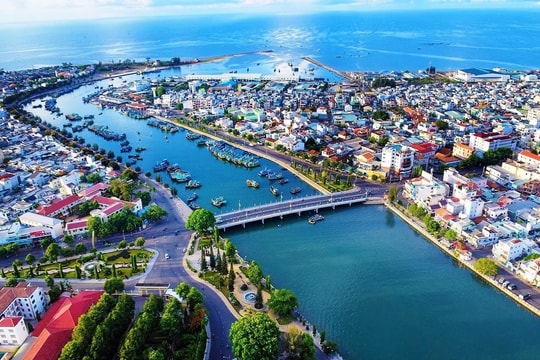
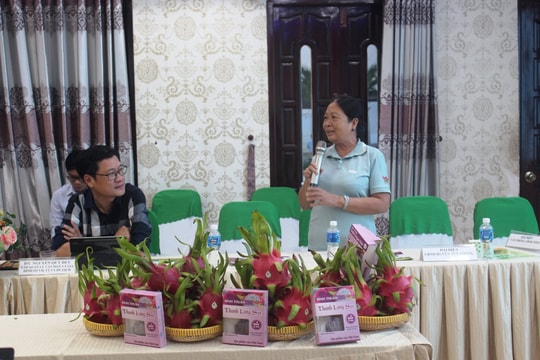

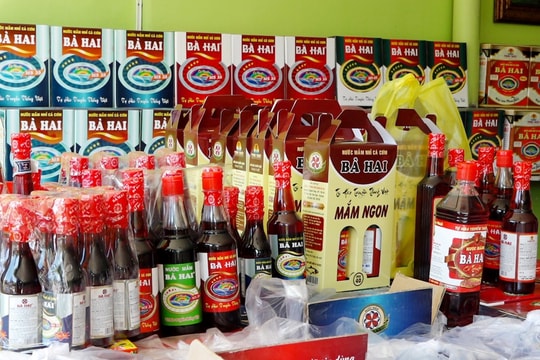




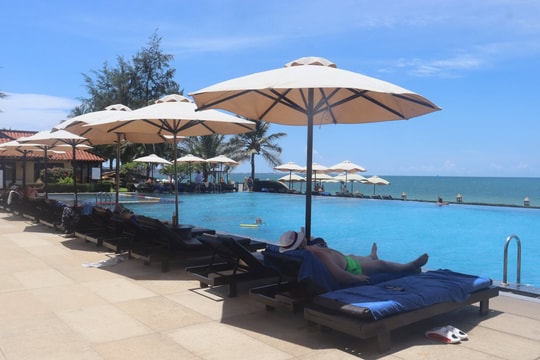

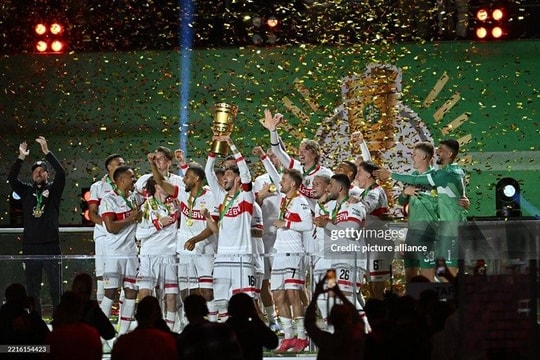

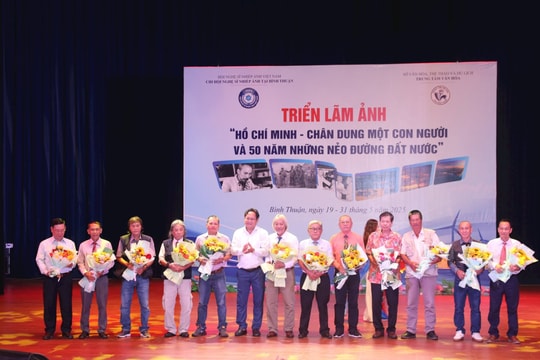






.jpg)
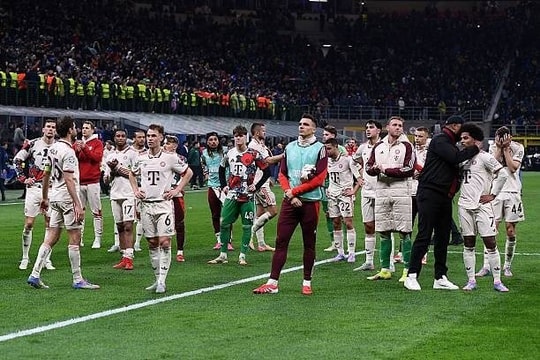
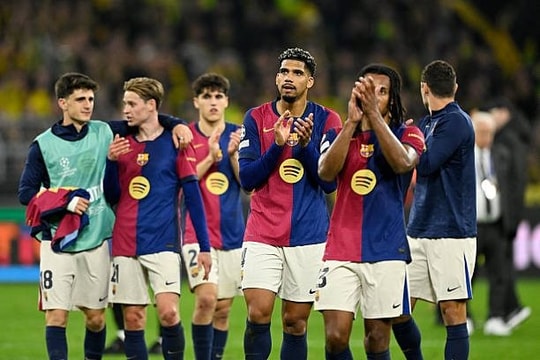


.jpeg)

.jpeg)


.jpeg)

